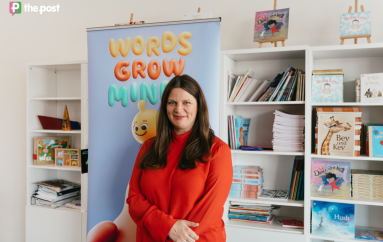Briefcase: Business snippets from around SA
In this week’s briefcase, an Adelaide tech firm partners with a historic American venue, SA’s biggest wind farm project cranks into action and a Kelsian Group subsidiary eyes hydrogen fuel cells for its bus fleet.
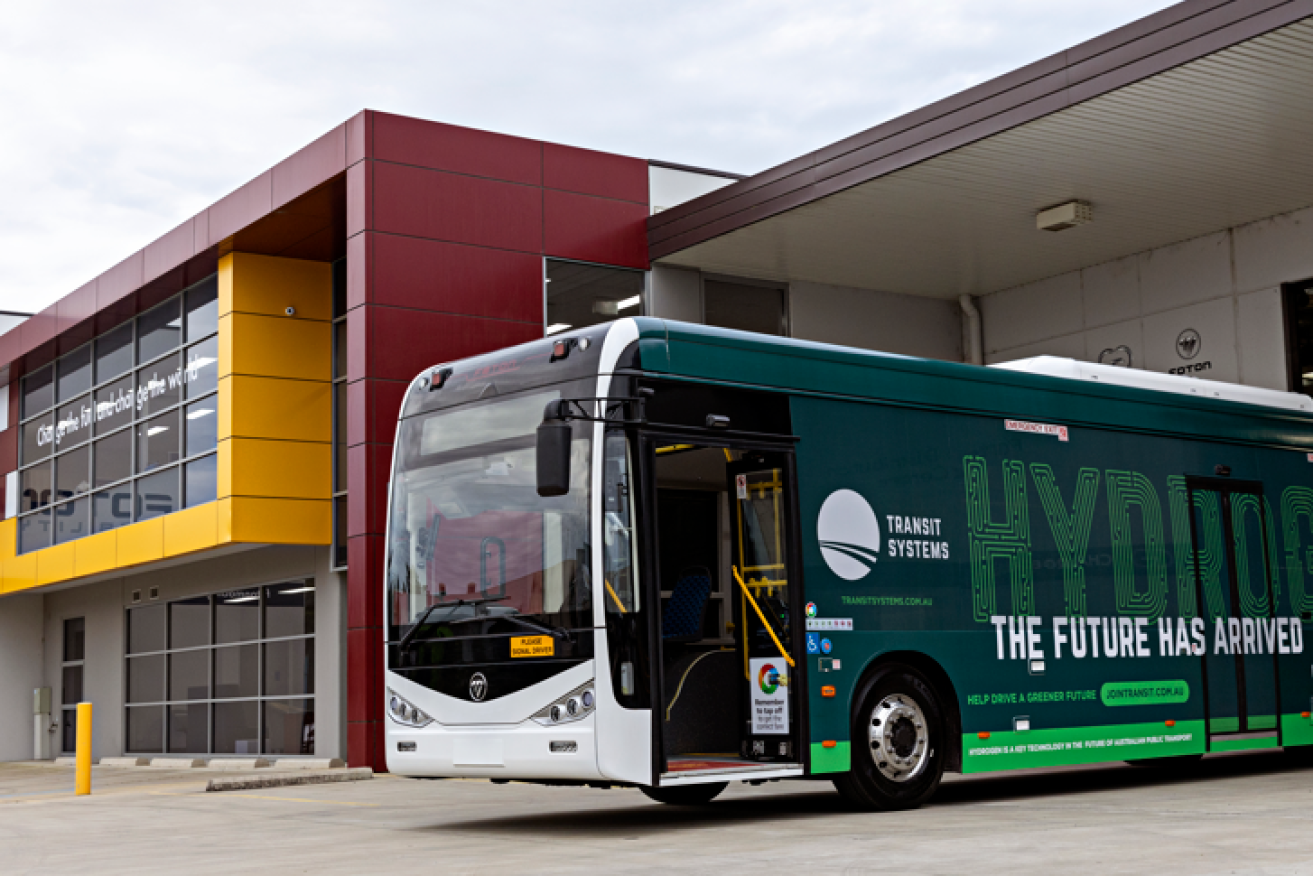
One of two new hydrogen fuel cell powered buses acquired by Kelsian Group subsidiary Transit Systems. Photo: supplied
- Adelaide tech firm partners with North America’s oldest music venue
- Fireplace manufacturer opens new factory in Cavan
- SA’s biggest wind farm project whirls into action
- Asension to boost space-enabled Defence capabilities
- Kelsian eyes hydrogen buses for Australian fleet
Adelaide tech firm partners with North America’s oldest music venue
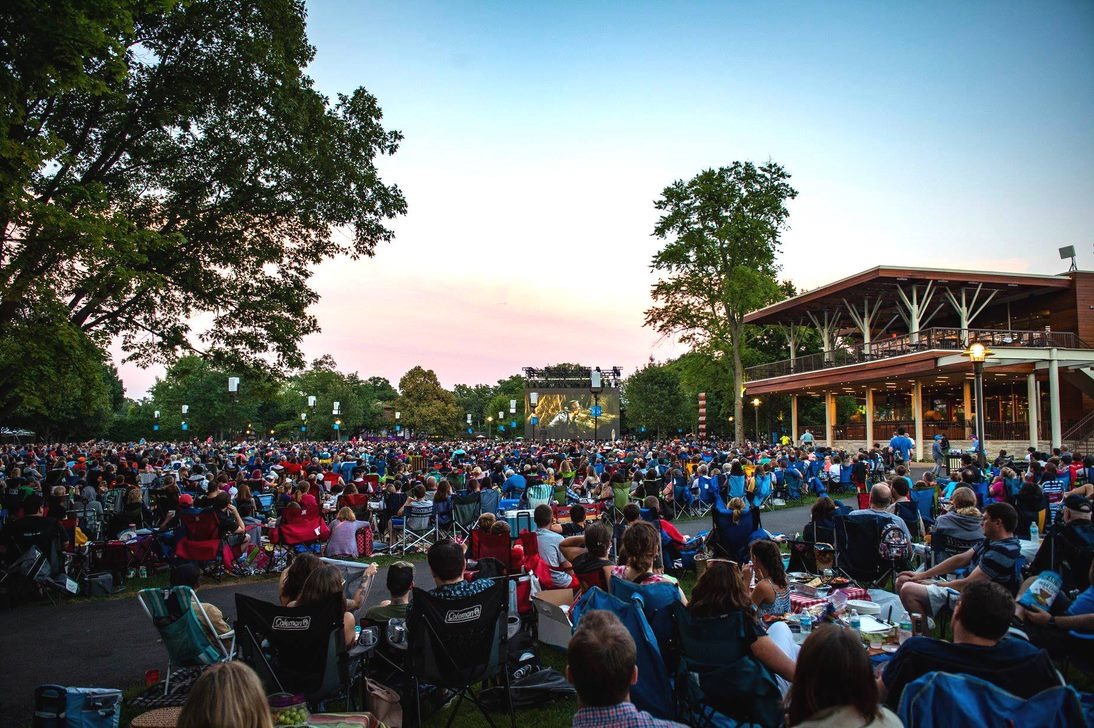
Punters at the Ravinia Festival, near Chicago. Photo: supplied
Adelaide hospitality tech start-up MyVenue has launched its mobile ordering and point of sale technology at the United States’ oldest music venue, Ravinia.
The 14-hectare outdoor concert and festival space in Highland Park, Illinois hosts around 600,000 people annually across more than 120 summer music events.
US hospitality provider Levy, which has catered for events such as the Super Bowl, Grammy Awards, and Kentucky Derby, selected MyVenue to provide more than 40 point-of-sale terminals across Ravinia’s concession stands, premium bars and restaurants.
The Adelaide company was also asked to deploy its mobile ordering, kitchen display and back-office system across the festival venue.
“Our technology ensures music fans are served quickly and conveniently, allowing them to maximize time spent enjoying all events at this world-class venue,” MyVenue chief operating officer and director David Brooks said.
Ravinia is the second venue operated by Levy to introduce MyVenue, after the system was recently installed at Guaranteed Rate Field, home of the Chicago White Sox.
A Levy representative said the cloud based MyVenue POS solution was chosen as it best met the “diverse requirements” of Ravinia.
“Levy is thrilled to have MyVenue’s next-generation solution deployed across all POS locations, plus mobile ordering, back office, and kitchen display system,” the representatives said.
Based at Lot Fourteen, MyVenue was founded in 2017 and offers a cloud-based point of sale system catered to the hospitality industry, and an app that allows users to order food and drinks from their phone.
The prevalence of MyVenue is growing in the US, with two NFL stadiums – State Farm Stadium in Arizona and Hard Rock Stadium in Miami – utilising the company’s technology.
MyVenue systems are also in use at Adelaide Oval.
– Sophie Holder
Fireplace manufacturer opens new factory in Cavan
South Australian fireplace manufacturer Nectre has moved into a new factory in Adelaide’s north in a bid to integrate all aspects of its business in one premise.
The national wood heater and oven maker, previously based in nearby Dry Creek, opened the new Cavan factory on Friday. The new hub is expected to house 25 workers
A spokesperson for Nectre said that everything from computer-aided designers, the testing and then production and approvals will now be at the one location to improve efficiency.
“There was a focus on getting part of the factory solar powered as well,” the spokesperson said.
The spokesperson said the goal of the factory upgrade was to ensure their products remained South Australian made.
“The first Nectre fireplace was made 44 years ago in someone’s back shed and since then they have maintained their roots in South Australia,” they said.
“Of course there would have been options to manufacture overseas, but [Nectre] are really all about local employment and expanding their footprint locally rather than taking those opportunities out of Australia.”
– Claudia Dichiera
SA’s biggest wind farm project whirls into action
Work has begun on the construction of 75 wind turbines near Burra in Adelaide’s north as part of French energy company Neoen’s Goyder Renewables Zone project.
The wind farm, which is one section of Neoen’s “Goyder South Stage 1” venture, is expected to add an additional 412 megawatts of capacity into South Australia’s electricity grid when it is completed in 2024.
The project was officially launched by the state government on Thursday and is projected to create 400 jobs during construction.
The 412MW of capacity represents almost a 50 per cent increase on South Australi’s next biggest windfarm, the Snowtown Stage 2 site which is 270MW, according to the Department of Energy and Mining.
Neoen, which also owns the Hornsdale Power Reserve and wind farm in Jamestown, has approval to build a total of 1200MW of wind generation and 900MW of battery storage within the broader Goyder Renewables Zone project.
Asension to boost space-enabled Defence capabilities
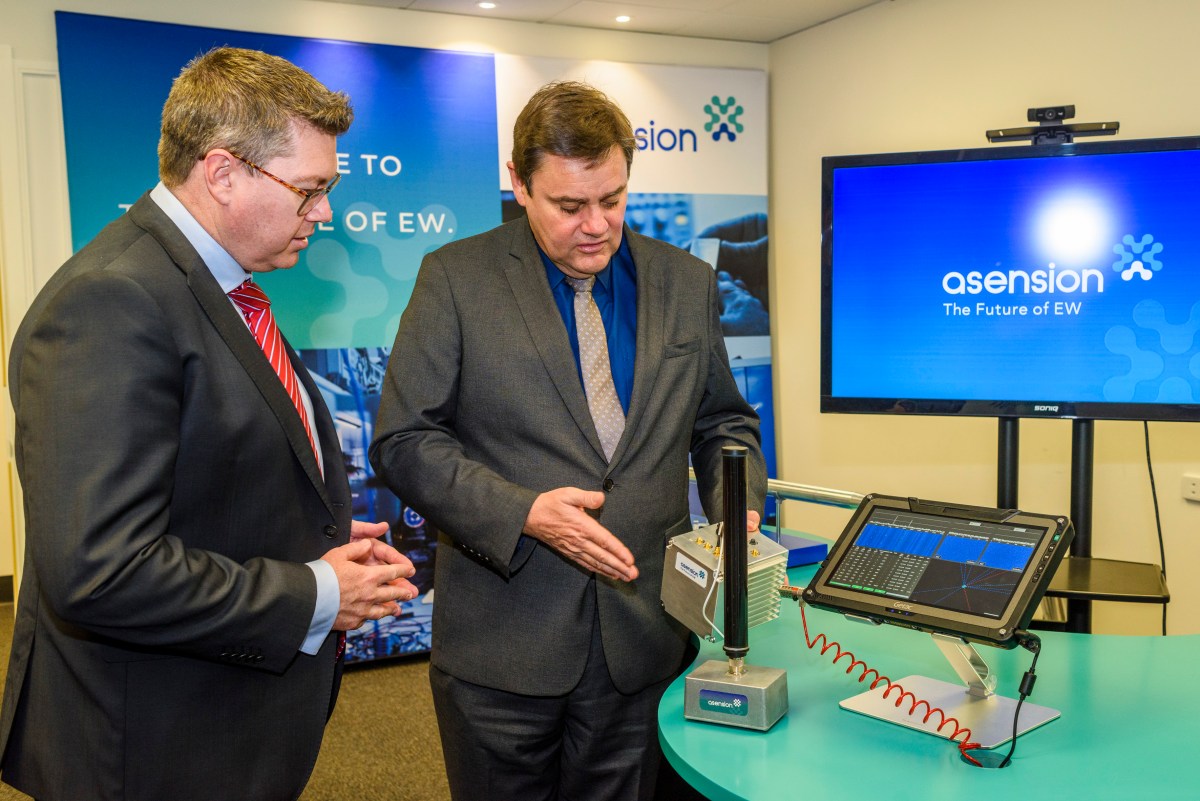
Minister for Defence Industry Pat Conroy with Asension CEO Ian Spencer. Photo: supplied
The Australian Defence Force’s Defence Innovation Hub has signed a $4.35 million contract with South Australian manufacturing company Asension for a space-based tactical sensor system.
After visiting the veteran-owned company’s headquarters in Adelaide, Minister for Defence Industry Pat Conroy said developing space-enabled capabilities is vital to Australia’s national security.
The space-based tactical sensor system, “if successful”, will improve the ADF’s space capabilities through “greater situational awareness and visibility”, Conroy said.
“The government’s partnership with innovative small businesses such as Asension will be critical to growing a robust, resilient and innovative industrial base for space technologies in Australia/
“Under this contract, Asension will continue the development of a sovereign, space-based tactical sensor system.
“If successful, this technology will enhance the Australian Defence Force’s capability in the space domain through greater situational awareness and visibility.
“This investment will help build Australia’s sovereign space industry and skilled workforce.”
According to Defence, the contract is a continuation of the collaboration between the company and the ADF, with Asension developing their sensor technology via another Hub contract in 2020.
Asension CEO Ian Spencer said the contract provided “an exciting opportunity” for the small business to expand its workforce and advance Defence’s space capabilities.
“This contract has been pivotal to the successful development of this capability to date and has enabled Asension to grow as a company,” Spencer said.
Innovation proposal submissions are open to Industry and research organisations through the Defence Innovation Portal.
– Anisha Pillarisetty
Kelsian eyes hydrogen buses for Australian fleet
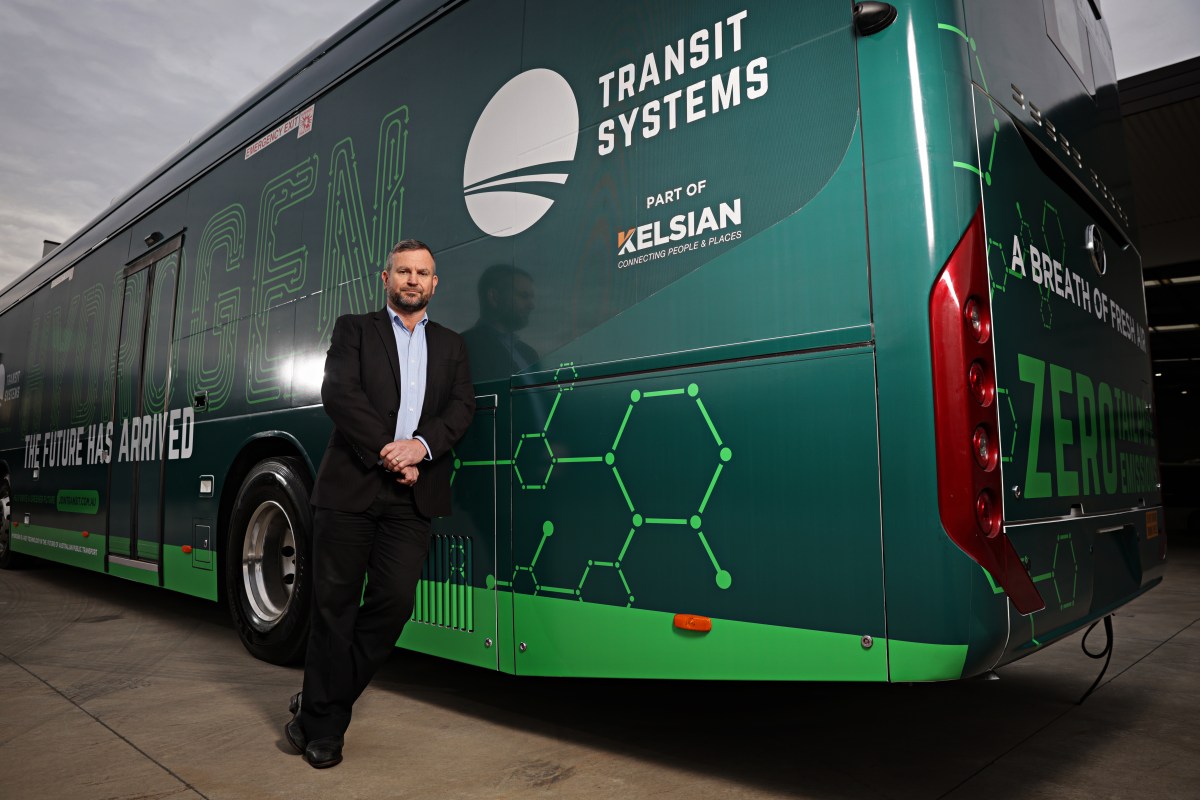
Transit Systems GM innovation fleet and business intelligence Mark Peters with one of the company’s new hydrogen fuel cell buses. Photo: supplied
Kelsian Group subsidiary Transit Systems has acquired two hydrogen fuel-cell buses from zero emissions transport company Foton Mobility.
The buses, jointly developed by Toyota and Chinese firm SinoHytec, have taken 10 years of development to reach commercial readiness, according to Foton Mobility.
The Sydney-based company says it has now manufactured and distributed more than 1100 hydrogen fuel cell buses, including 450 to the Beijing Winter Olympics.
Transit Systems, which operates much of Adelaide’s privatised bus and tram network, said it would work with government partners and industry stakeholders to gradually introduce hydrogen buses along with other green forms of mass transit.
The Kelsian Group subsidiary already has 60 electric buses in its fleet and said it was in “exciting deployment discussions” with clients about green technology vehicles.
“We successfully operated hydrogen fuel cell buses in London for over seven years, and have continued to leverage that experience, knowledge and contacts to pave the way for a diesel-free bus fleet in Australia,” Transit Systems chief operating officer Greg Balkin said.
“We are confident that our efforts will further drive the performance of hydrogen fuel cell and battery electric technology and accelerate the deployment of more sustainable public transport in Australia.”




